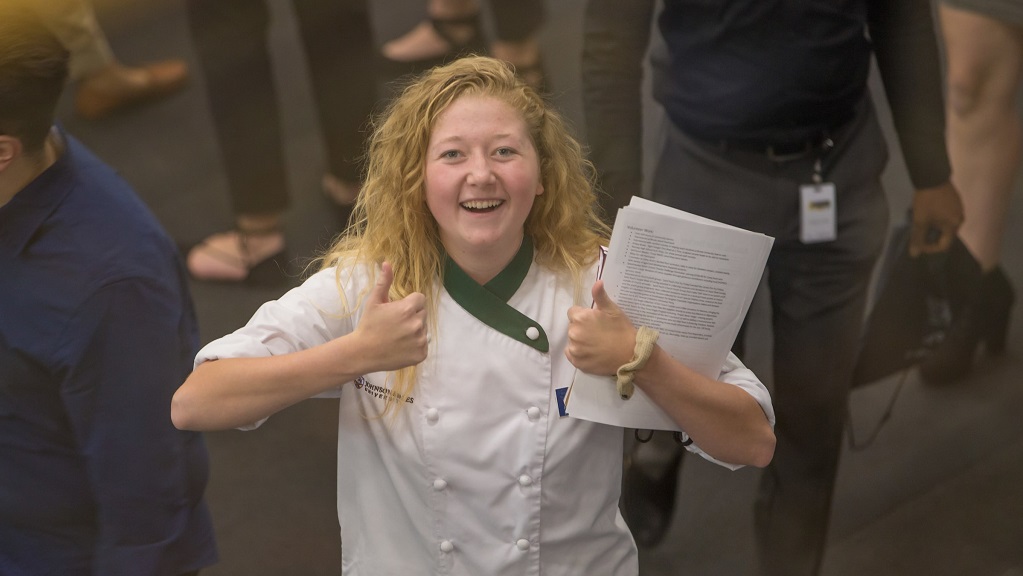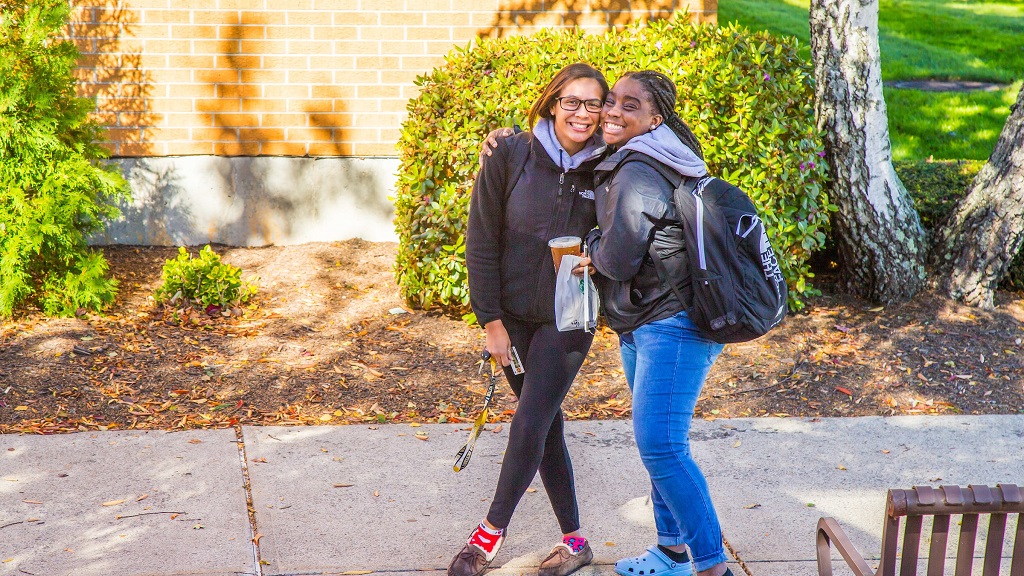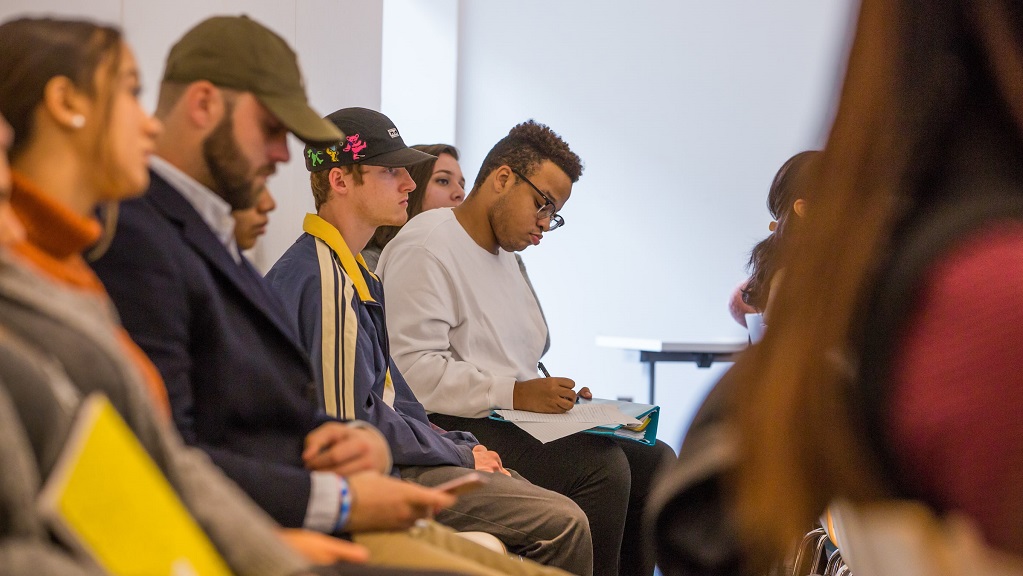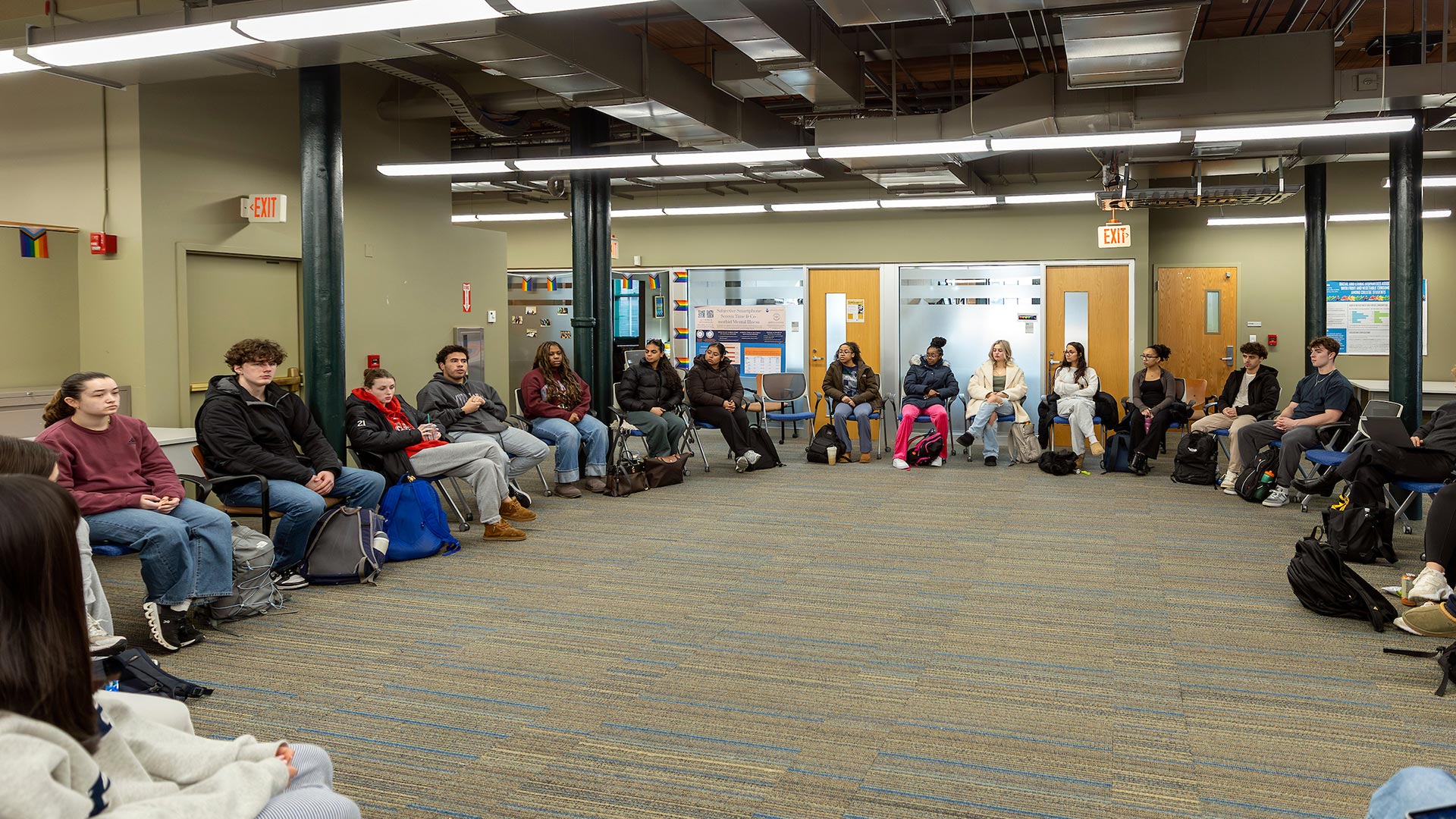5 Questions to Ask Your Admissions Rep
Why? How come? When can I? Remember asking a zillion questions when you were little? (And driving your parents bonkers!) That’s how you learned. Questions are your key to unlocking whole new worlds, including the one you’ll find at college. Counselors will prompt you to inquire about acceptance rates. You’re itching to find out about parties. But here are other queries whose answers will equip you with facts you need to forge your future …

1. What is your internship program like?
Of all the questions to ask, this is tops! That’s because employers say experience is the number-one thing they look for when hiring. Internships give you experience as well as build your network and boost your confidence. Make sure a school’s internships aren’t just shadowing someone or making copies and coffee. Seek a robust program so that when you’re interviewing come graduation, you don’t say: “I want to do this…,” you show: “I have done that…”
2. What major should I choose?
Start by thinking about your dream job. Maybe it’s in business or sports, food or health or saving the planet. Share that dream with an Admissions Rep who can translate it into a college major. They’ll open your eyes to careers you might never have known. Ask about the college’s career outcomes rate and find out if there’s flexibility to customize your studies with minors, concentrations or double majors. Don’t overstress; you can always change. If you’re totally up-in-the-air, explore our undecided or sampler programs.

3. What’s a typical day in the life of a college student?
You may wonder if college is like high school. Will it be “Grade 13?” Inquire about schedules and class sizes (experts say the smaller the better for individual attention from your profs). And rephrase that party question into: “What is there to do for fun outside of class?” You’d be surprised at the variety of extracurricular activities beyond Greek life and athletics. Ask what’s happening in the community around campus, too.
4. What can I do now to increase my chances of getting accepted?
Colleges consider your cumulative GPA so (no-brainer!) do your best. All subjects are important, but math and English often get the most attention (you have to be able to communicate and have computational skills no matter your major). Research as early as possible the specifics for the schools that most interest you to find out how much emphasis they put on extracurriculars and standardized tests (many are now test-optional). The sooner you discover the kind of student a school is seeking, the more likely you can be that student.

5. What if I learn differently?
Got a learning difference? You’re not alone. In the U.S. today, more than 7 million students do. Most colleges accept IEPs and offer accommodations, but you’ll want to delve deeper to make sure a college is prepared to help you succeed. The first step is to self-identify with an admissions professional and inquire about available resources. There even may be summer programs to give you a boost.
Bonus: __________?
This one is intentionally blank for you to ask yourself what’s most important to you. Maybe it’s diversity or a major sports program, being in a big city or a small town. Perhaps you seek a school with support for LGBTQ students or pet-friendly dorms, or something else uniquely you. Dig deep to determine what matters most, then ask about it!
Why Choose Johnson & Wales University?
Johnson & Wales University has beautiful campuses in both Providence and Charlotte, as well as online courses. Students can choose from 80 different majors, all of which prepare students for the workforce.



